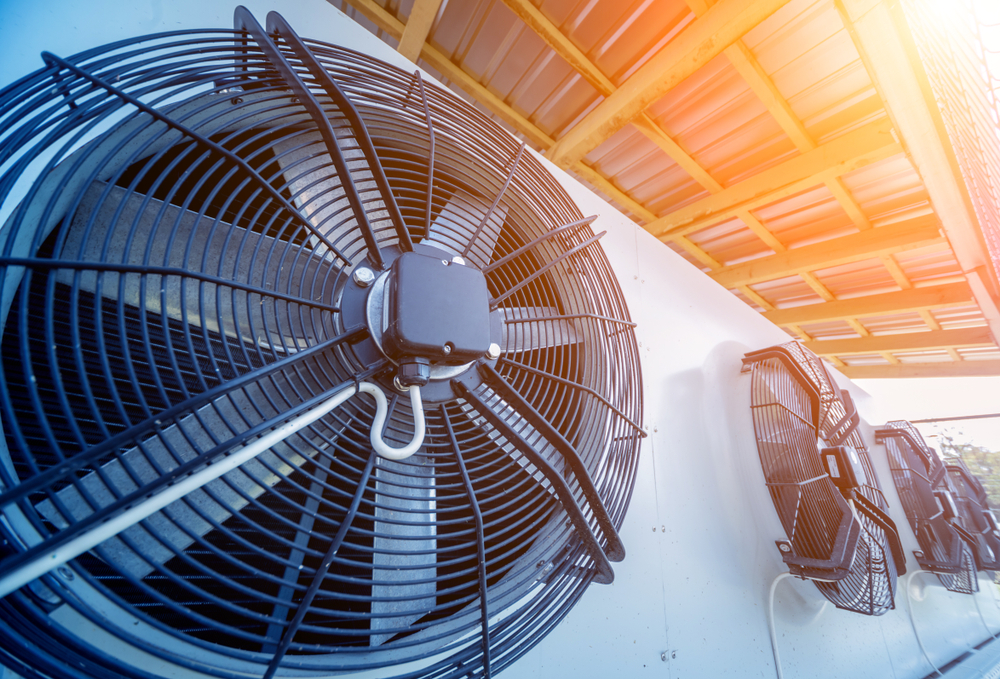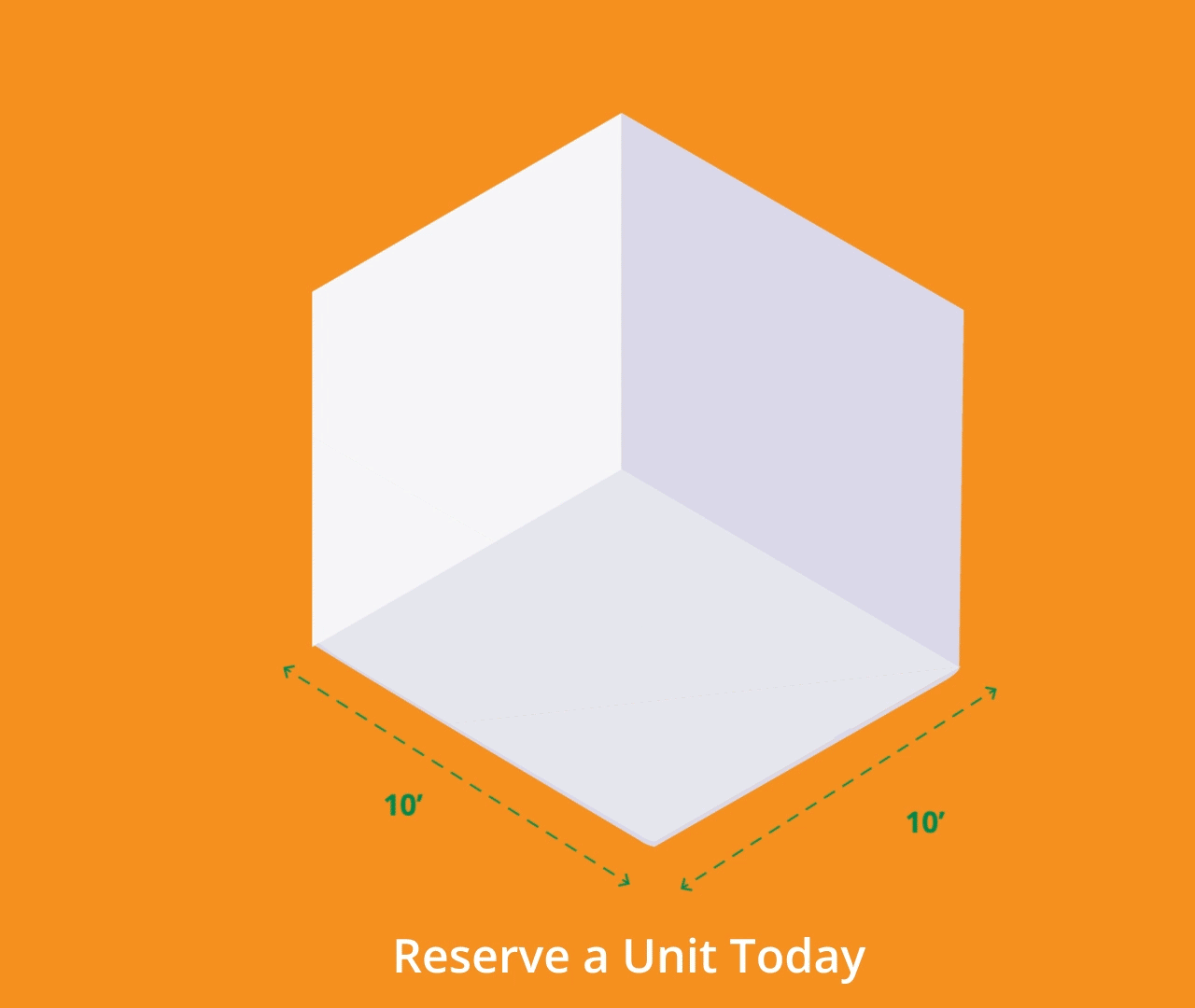-

What Can I Store in a Non Climate Controlled Storage Unit?
If you thought that determining the size of your storage unit was the only thing you had to consider when storing your items, think again. Believe it or not, outside temperatures actually play a big role in the kind of storage unit you rent. That’s because extreme conditions can melt, crack, warp, rust, and otherwise alter certain materials.
Suppose you live in a particularly hot or cold climate, or one that experiences sharp fluctuations in weather and temperature. In that case, the outside temperature is something you’ll want to keep in mind when choosing a storage unit. And because this is such an important factor, many storage facilities provide you with two options: non-climate controlled storage and climate-controlled storage.
When deciding between the two storage choices, you’ll want to consider what you’re storing, the kinds of materials they’re made from, and the weather conditions where you live.
So what can you store in a non-climate controlled storage? And what items need a climate-controlled storage unit? We’ve got the answers in this guide. Keep reading and you’ll learn how to decide on the best storage unit for your belongings.
Why Does Climate Control Matter?
Before we get into why climate control matters, let’s first answer the question: What does climate-controlled storage even mean?
Climate-controlled storage refers to storage units that maintain temperatures in a certain range at all times, usually between 55 and 80 degrees F. Non-climate controlled units, on the other hand, do not offer this feature, and their internal temperatures often reflect outside conditions.
Climate control is important because it regulates the temperature in your storage unit to prevent your unit from getting too hot, too cold, and too humid, as high or low temperatures can wreak havoc on sensitive materials.
So how hot can a storage unit get if it’s not climate controlled? It depends. If a storage unit is located in an area without any trees or shade, inside temperatures will have no trouble rising to 90 degrees F or higher. In fact, the temperature inside a storage unit can easily creep 30 degrees higher than the outside temperature. This can cause wood to split, plastic to melt, metal to corrode, and more. Mix those temperatures with humidity and any kind of moisture, and it can be a recipe for disaster when it comes to certain materials.
If storage units get that warm in the height of the summer, you can only imagine how cold they can get in the frigid winter months. Plummeting temps can be just as harmful to some materials, weakening metal, snapping plastic, and warping wood.
Now that you have a better idea about climate-controlled vs. non-climate-controlled storage units, let’s discuss what kind of items are best suited for each option.
Items That Can Be Stored Without Climate Control
Is climate control necessary for storage? No. Certain materials do just fine when exposed to hot or cold conditions and can withstand fluctuations in temperatures and moisture. And if you’re only planning to temporarily store your belongings, the temperature may not even factor into the equation, as your items will not be exposed for long periods of time. What’s more, your storage unit may be located in a mild climate that does not experience extreme temperatures.
So what can you store in a non-climate controlled storage? Follow our list below to find out more.
Gardening equipment
Your gardening equipment will likely do just fine in non-climate controlled storage. You can typically store items like tools, shovels, rakes, weed whackers, mowers, hoses, and even tractors without climate control.
Cars and recreational vehicles
Cars, trucks, boats, and trailers do not require air-conditioned storage units. With that said, if you are storing an antique or vintage model, you may want to consider climate-controlled options for extra peace of mind.
Clothing
You can store clothing in a unit without climate control as long as it’s inside a sealed container. Pick up some plastic bins or wardrobe boxes and throw in some cedar balls for good measure.
Plastic patio furniture
Plastic patio furniture is meant to withstand outside elements, from sunlight and rain to snow and heatwaves. Because of its resiliency, plastic furniture is okay to store in a unit without air conditioning.
Kitchen items
Dishes, plates, mugs, and utensils generally do not require a climate-controlled space. But if you’re looking to store glassware, you may want to look into temperature-controlled options as cold temperatures can make glass brittle.

Items That Need Climate Control
If you’re wondering, do I need a climate-controlled storage unit? First, take inventory of your items. Assess the materials and determine if any belongs are irreplaceable. Also, consider how long you’re looking to store your items. If you’re interested in long-term storage, a temperature-controlled unit might be the best course of action.
Check out the following for more guidance:
Furniture
A lot of furniture is made with sensitive material, whether it’s antique wood, delicate leather, or fragile fabric. Excessive cold and hot weather can warp, shrink, thin out, and rot furniture, and even attract mold and mildew.
Antiques and collectibles
If you’re looking to store something that is irreplaceable, definitely go the climate-controlled route. This includes family heirlooms, vinyl records, antique furniture, and even coins.
Artwork, photographs, and important documents
Humidity and paper do not go well together. Humidity can cause the paper to wrinkle, fade, warp, and, yes, grow mold. Whether you’re storing family photos, collectible artwork, or important documentation, reserve a temperature-controlled unit to help preserve its integrity.
Appliances and electronics
A toasty storage unit is no place for anything that plugs in. Connections can rust, while plastic can melt and crack under changing conditions. Turn to climate control when storing anything from computers and microwaves to washers and refrigerators.
Musical instruments
Instruments are delicate and not made to withstand extreme temperatures and humidity, which can alter the sound of the instrument or even permanently damage it. Whether it’s your grandpa’s trumpet, an antique violin, or your beloved grand piano, choose a climate-controlled unit for your musical instruments.
Other Reasons to Rent a Climate Controlled Unit
There are more advantages to climate-controlled storage units aside from just providing a steady temperature range. Climate-controlled units have better airflow than non-climate-controlled units, which means fresh air can circulate through the units to assist with keeping items from deteriorating. Many of these controlled units are also insulated and sealed, which helps prevent outside elements like dust, water, and insects from creeping inside. Some units even provide humidity control, setting them at a 55% humidity level to help eliminate dampness, which can otherwise lead to the growth of mold and mildew.
Climate-controlled units are a great option, but they’re not always necessary. If you’re interested in more guidance regarding climate-controlled vs. non-climate-controlled storage units, allow us to help.
Here at Stor-It, we feature both non-climate and climate-controlled units that come in various sizes. We also offer all kinds of storage tips and advice to help you make the best decision when it comes to your storage needs. Contact us today to reserve your storage unit with us.
-
Receive Updates
Proudly Serving Idaho's Finest












